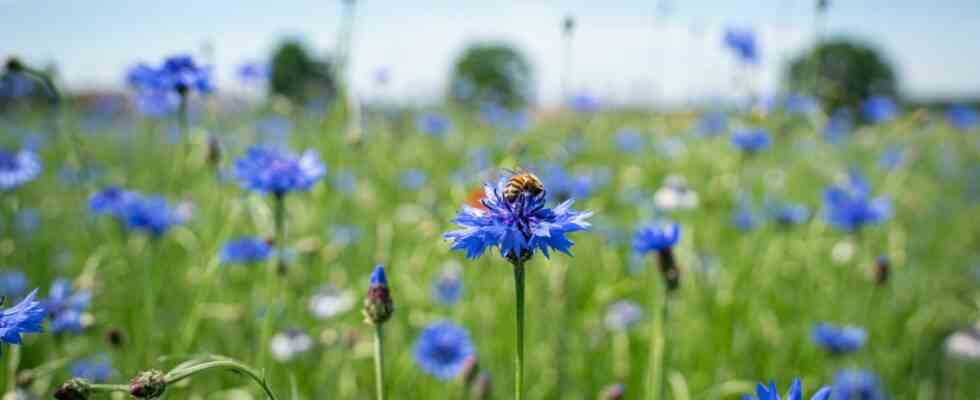Hardly any flies on the windshield, fewer and fewer birds in the fields and meadows: the biodiversity crisis has not gone unnoticed by observant contemporaries for some time. Scientific studies support such everyday experiences. One in eight bird species worldwide is threatened, and even more than every third insect species could become extinct in the next few decades. The British ecologist Dave Goulson from the University of Sussex speaks of an impending “insect apocalypse” given the enormous importance of the animals.
Unfortunately, according to a new study, this bleak forecast for the future has long since become reality. And that has fatal consequences. The interdisciplinary study According to an international team led by scientists from Harvard University, insect mortality is already indirectly killing hundreds of thousands of people every year, triggering serious diseases and causing costs in the billions.
The reason: Due to the sharp decline in insects on all continents, most cultivated plants are only insufficiently pollinated by wild bees, bumblebees, beetles or butterflies. This hinders the production of healthy foods such as fruit, vegetables or nuts. These are becoming so expensive that many people refrain from eating them. And in the long run, that means more heart disease, stroke, diabetes and cancer. The authors report in the journal that the loss of these pollinators causes around 430,000 premature deaths worldwide every year Environmental Health Perspectives. In Europe, too, one percent of all premature deaths can be traced back to the reduced consumption of fruit and vegetables caused by the disappearance of insects.
More than two-thirds of all crops depend on insect pollination
How important animal pollinators are for the production of food – in addition to bees, hoverflies and butterflies, birds and bats are also important seed transporters – has long been known. In a 2016 report, the World Biodiversity Council came to the conclusion that insects pollinate more than two thirds of the world’s crops – from coffee and cocoa to fruit and vegetables – and thus make them usable for the production of food. As a result, the humming and buzzing helpers generate an economic performance worth more than 500 billion euros every year. Even more important are pollinators for wild plants. Of these, almost 90 percent depend on the transmission of pollen by animals.
According to its authors, the Harvard study is the first study dedicated to the direct health effects of the biodiversity crisis on humans. In order to quantify the corresponding crop losses, the researchers rely on empirical data from a network of hundreds of experimental farms in Asia, Africa, Europe and Latin America. They also modeled the effects of the identified reduced yields on global trade and consumption of fruit, vegetables and nuts – and on nutrition-related health risks.
“Because of insufficient pollination, between three and five percent of the production of fruit, vegetables and nuts is lost worldwide,” is a key finding of the modelling. The associated increase in deaths from stroke, heart disease and cancer is three times higher in rich parts of the world like Europe than in poorer continents like Latin America. Middle-income countries with large populations – such as China and India – are hardest hit. However, countries with very low average incomes experience the greatest economic losses. They are already losing up to a third of their entire agricultural added value due to insect death.
“Insect decline is not only a problem for nature, but also for human health”
The researchers complain that the consequences of species extinction for human health have so far not been discussed enough in the biodiversity debate. “We show that the loss of pollinators already threatens human health on the same scale as drug use, interpersonal violence or prostate cancer,” says Samuel Myers of the Department of Environmental Medicine at Harvard’s TH Chan School of Public Health, one of the co- authors. Finding ways to protect wild pollinators is therefore not only an environmental but also a health and economic issue, according to lead author Matthew Smith, who works at the same institute.
At the political level, there have long been arguments about ways and means that could help slow down the global decline of insects. Scientists see the most effective way to drastically reduce the use of pesticides in agriculture. Politicians are hesitant to follow this suggestion. At the end of last year in Montreal, the UN World Conference on Nature decided to halve the threat to biodiversity posed by pesticides by 2030. The biodiversity strategy of the European Union has set itself the same goal.
The authors of the study also see the best health protection in a revival of nature. As concrete measures, they propose increasing the abundance and variety of flowers on farms, reducing the use of pesticides and preserving or restoring natural habitats in the agricultural landscape.

